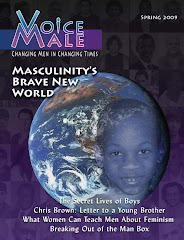In addition to productions of the play at colleges and universities, some high schools have begun producing the play, including the one in my hometown, Amherst, Massachusetts.
Performances of The Vagina Monologues, presented around the world to raise consciousness and money for the movement to end violence against women have rarely included high school productions. At Amherst High School in Massachusetts the local performance was organized by members of the Women’s Rights Club, a student group that blends activism and education about gender violence into an inspirational mix. The group is a powerful beacon spotlighting a generous vision of healing and hope of what young people are capable of achieving.
While working to end domestic and sexual violence remains a daunting task, there is cause for hope thanks to students like these, members of Generation Next. Despite coming of age amid a perpetual onslaught of violence-laden and sexualized pop culture imagery, these emerging young adults are challenging a society reluctant to admit it still sees male dominance as essential to a functioning social order.
The 2004 production of the play at Amherst High drew national media attention, including an appearance by the play’s student director on the Today show along with playwright Eve Ensler. A small firestorm of protest questioning the production being performed at a high school long ago died down. Consciousness about the topics the play explores — the reality of the dangers women face—continues to rise. Also increasing is the number of students advocating for an ongoing examination of women’s equality and safety and men’s roles in challenging violence as legitimate topics to learn about.
As a symbol for other young people to follow, the Women’s Rights Club is impressive. It has 85 members, a quarter of whom are males. In fact, one of the group’s co-presidents is a young man who speaks eloquently about why men and boys should act respectfully toward women and girls.
Among males, both in high schools and colleges, consciousness about confronting violence against women continues to grow. It is good news that more male students are getting involved. From Amherst College to Pomona College in California, in increasing numbers young men are establishing groups to educate and support themselves as they challenge one another to drop the old dominating ways they’ve been socialized to believe in. On many campuses, programs exploring a range of issues young women and men face as they grow into adulthood are seeing an increase in enrollment. Through them men get a window into the world their mothers and sisters inhabit—a world where sexual harassment and sexual assault are a fact of daily life. A world where a woman’s safety requires her to look in the backseat of her car every time she gets in it. A world where before going out at night means carrying a whistle, or making sure you know how to reach campus security. A world men don’t inhabit.
Many men chafe at acknowledging how prevalent violence against women is, minimizing the real and present danger women cope with every day. But a growing number of younger men, new leaders emerging from Generation Next, are finding their voices. To stay on pitch they must listen too; in their enthusiasm they mustn’t drown out their female counterparts in the chorus of change. It is appropriate for men to practice playing offstage roles in supporting women, and not just in obvious circumstances such as productions of The Vagina Monologues.
While men have much to learn from each other, we have much to learn from women as we work to create a safe, egalitarian society. Among the most difficult lessons is admitting we have to give up some of the privilege we enjoy. Learning that lesson in high school or college, rather than decades later, would be a welcome sign of hope for gender reconciliation for all of us.




No comments:
Post a Comment